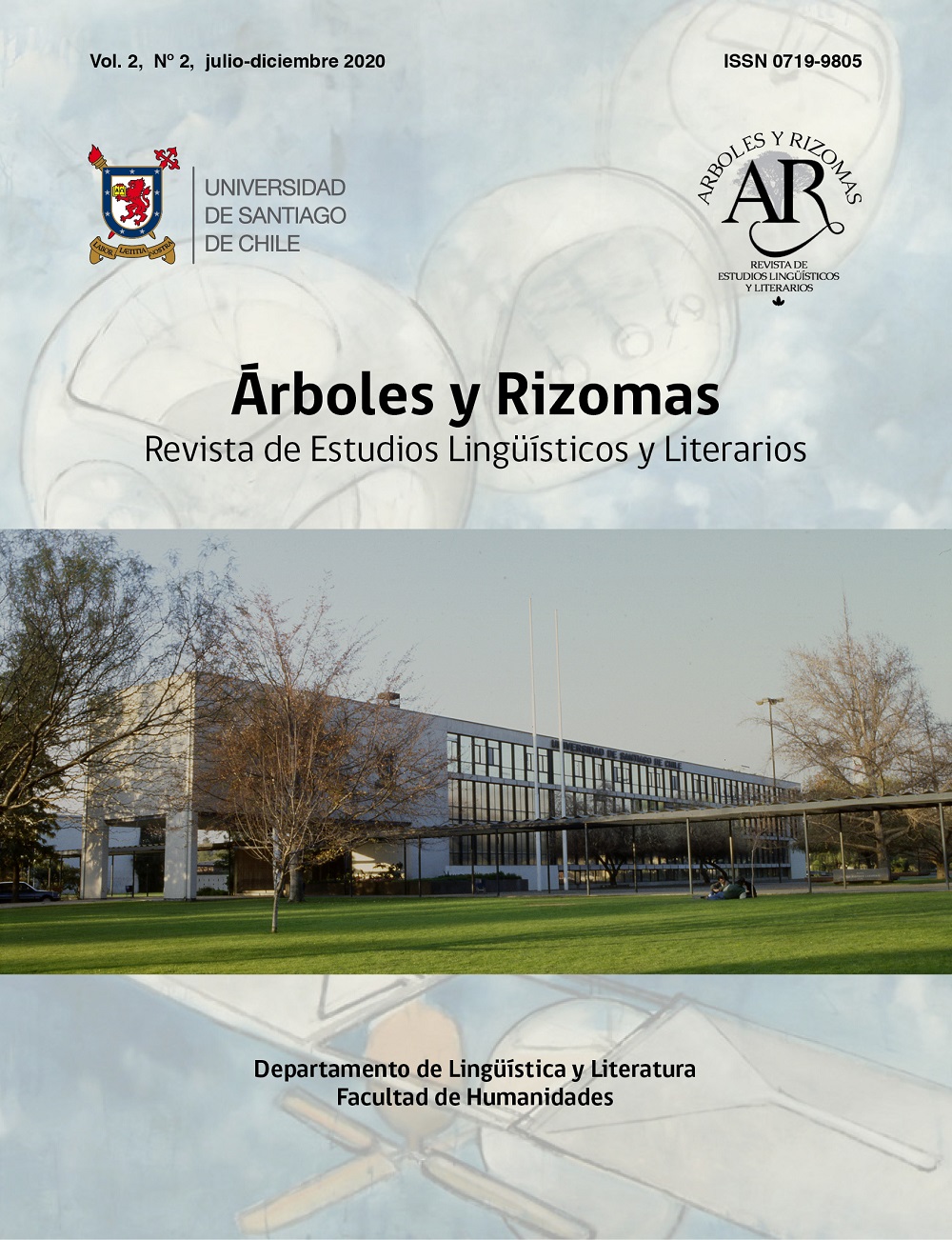Ecosystemic Discourse Analysis - EDA
DOI:
https://doi.org/10.35588/ayr.v2i2.4634Keywords:
Ecological Discourse Analysis, Ecosystemic Linguistics, defence of life, fight against sufferingAbstract
The main objective of this article is to present Ecosystemic Discourse Analysis (EDA). This discipline is part of Ecosystemic Linguistics (EL), a version of Ecolinguistics developed in Brazil and whose precursors are the works of the language philosopher Peter Finke (1996), the ecolinguist Wilhelm Trampe (1990) and the School of Dialectical Linguistics, created by Jørgen Døør and Jørgen Christian Bang. EDA had additional influences from various sources, such as deep ecology and the ideas of Ghandi, among others. Due to those origins, when analysing a text-discourse, EDA does not place the main emphasis on political ideologies, as happens in traditional discourse analysis – with rare exceptions as Martin’s Positive Discourse Analysis (2004) – instead, it focuses on the defence of life and the fight against suffering. There are political ideologies in EDA, but life is considered more important than them.
Downloads
References
Alexander, R. e Stibbe, A. (2014). From the analysis of ecological discourse to the ecological analysis of discourse. Language sciences, 41, 104-110.https://doi.org/10.1016/j.langsci.2013.08.011
Bakhtin, M. (1981). Marxismo e filosofia da linguagem. São Paulo, Brasil: HUCITEC.
Bang, J. e Døør, J. (2007). Language, ecology and Society: A dialectical approach. Londres, Reino Unido: Continuum.
Benveniste, É. (1989). Problemas de linguística geral II. Campinas, Brasil: Pontes.
Couto, H. (2020). Discursística. Disponível em: https://ilinguagem.blogspot.com/
Couto, H. (2019). Uma leitura ecolinguística de ‘Se eu quiser falar com Deus’ de Gilberto Gil. ECO-REBEL, 5(2), 40-53. Disponível em: https://periodicos.unb.br/index.php/erbel/article/view/27661
Couto, E. (2018). Resenha de Fill e Penz (2018). Ecolinguística: revista brasileira de ecologia e linguagem. ECO-REBEL, 4 (2), 97-103. Disponível em: https://periodicos.unb.br/index.php/erbel/article/view/12352/10834
Couto, H. (2018a). Ecosystemic Linguistics. In: Fill, A. e Penz, H. (Ed.). The Routledge handbook of Ecolinguistics. New York/London: Routledge (pp. 149-161). https://doi.org/10.4324/9781315687391-11
Couto, H. 2018b. Ecolingüística. In: Arratia, M.; Limachi,V. (Orgs.). Construyendo una sociolingüística del sur. Cochabamba, Bolívia: Talleres Gráficos “Kipus” (pp. 173-194).
Couto, H. (2018c). A metodologia na Linguística Ecossistêmica. ECO-REBEL 4(2), 18-33. Disponível em: https://periodicos.unb.br/index.php/erbel/article/view/12355/10835
Couto, H., Couto, E., Paulino, G., Albuquerque, D. (orgs.). (2016). O paradigma ecológico para as ciências da linguagem: Ensaios ecolinguísticos clássicos e contemporâneos. Goiânia, Brasil: Editora da Universidade Federal de Goiás, 527 págs.
Couto, H. (2016a). Comunidade de fala revisitada. ECO-REBEL, 2(2), 49-72. Disponível em: https://periodicos.unb.br/index.php/erbel/article/view/9690
Couto, H. (2016b). Estudos gramaticais à luz da linguística ecossistêmica. Scripta, 20(38), 26-53. Disponível em:
https://doi.org/10.5752/p.2358-3428.2016v20n38p26
Couto, H. (2015). Ecological/ecosystemic discourse analysis. Disponível em:
https://ecosystemic-linguistics.blogspot.com/2015/11/ecological-discourse-analysis-eda.html
Couto, H., Couto, E. e Borges, L. (2015). Análise do discurso ecológica – ADE. Campinas, Brasil: Pontes
Couto, H. (2007). Ecolinguística: Estudo das relações entre língua e meio ambiente. Brasília, Brasil: Thesaurus, 462 págs.
Fill, A. (1987). Wörter zu Pflugscharen: Versuch einer Ökologie der Sprache. Viena, Austria: Böhlau.
Fill, A. (1993). Ökolinguistik: Eine Einführung. Tubinga, Alemanha: Gunter Narr.
Fill, A. (1996). (org.). Sprachökologie und Ökolinguistik. Tubinga, Alemanha: Stauffenburg.
Fill, A. e Penz, H. (2018). The Routledge handbook of Ecolinguistics. New York, USA: Routledge.
Finke, P. (1996). Sprache als missing link zwischen natürlichen und kulturellen Ökosystemen. In: Fill (org.), p. 27-48.
Garner, M. (2004). Language: An ecological view. Berna, Suíça: Peter Lang.
Halliday, M. (1990). News ways of meaning: The challenge of applied linguistics. Journal of applied linguistics, 6, 7-36.
Haugen, E. (1972). The ecology of language. The ecology of language: Essays by Einar Haugen. Stanford, USA: Stanford University Press, (325-338).
Marías, J. (1960). Introdução à filosofia. São Paulo, Brasil: Livraria Duas Cidades.
Martin, J. (2004). Positive discourse analysis: Power, solidarity, and change. Revista canaria de estudios ingleses, 49, 179-200.
Naess, A. (1989). Ecology, community and lifestyle. Cambridge, Reino Unido: Cambridge University Press.
Privat, E. (1958). Vie de Gandhi. Paris, França: Denoël.
Sapir, E. (1912). Language and environment. American anthropologist 14, 226-242.
Silva, M. (2020). Coronavírus, ideologias e análise do discurso ecossistêmica. ECO-REBEL, 6(2), 90-106. Disponível em:https://periodicos.unb.br/index.php/erbel/article/view/32667/26622
Silva, M. (2021). ECO-REBEL v. 7, n. 1 (a sair).
Tan, X. (2020). Overview of the development of Ecolinguistics in China during the 40 years of reform and opening up. ECO-REBEL, 6(2), 62-77. Disponível em: https://periodicos.unb.br/index.php/erbel/article/view/32665/26620
Trampe, W. (1990). Ökologische Linguistik: Grundlagen einer ökologischen Wissenschafts- und Sprachtheorie. Opladen, Alemanha: Westdeutscher Verlag. https://doi.org/10.1007/978-3-322-94182-4_4
Voegelin, C. e Voegelin, F. (1964). Languages of the world: Native America fascicle one – Contemporary language situation in the New World. Anthropological linguistics, 6(6), 1-151.






